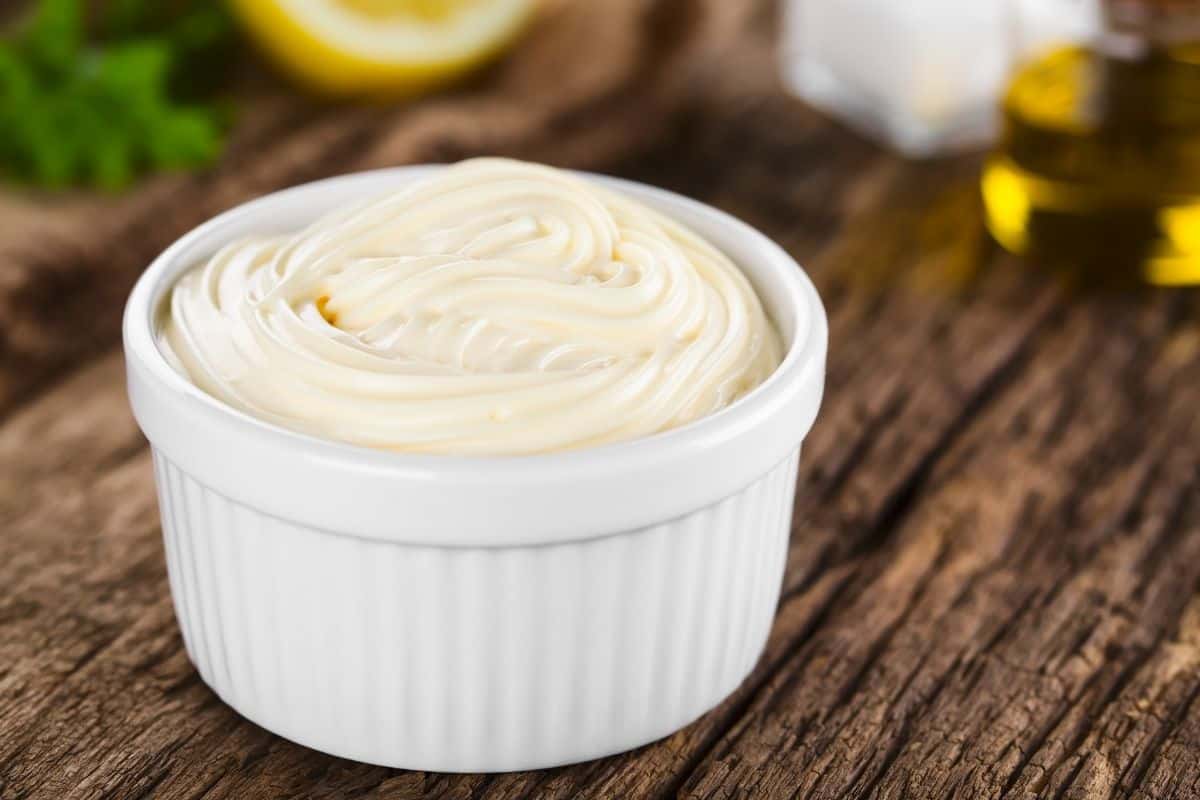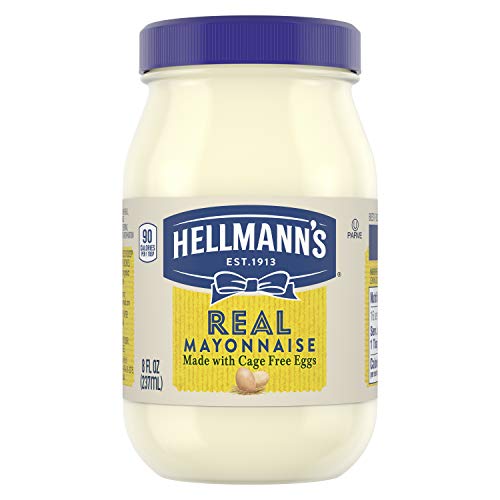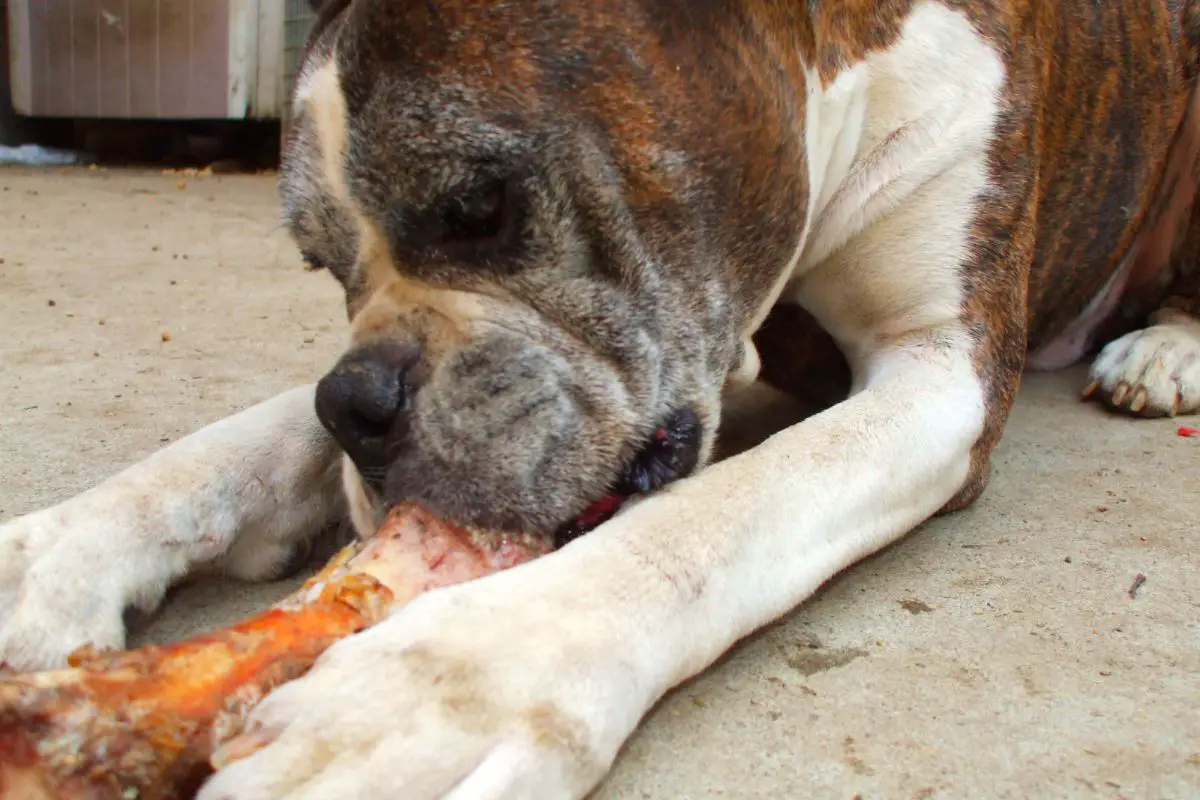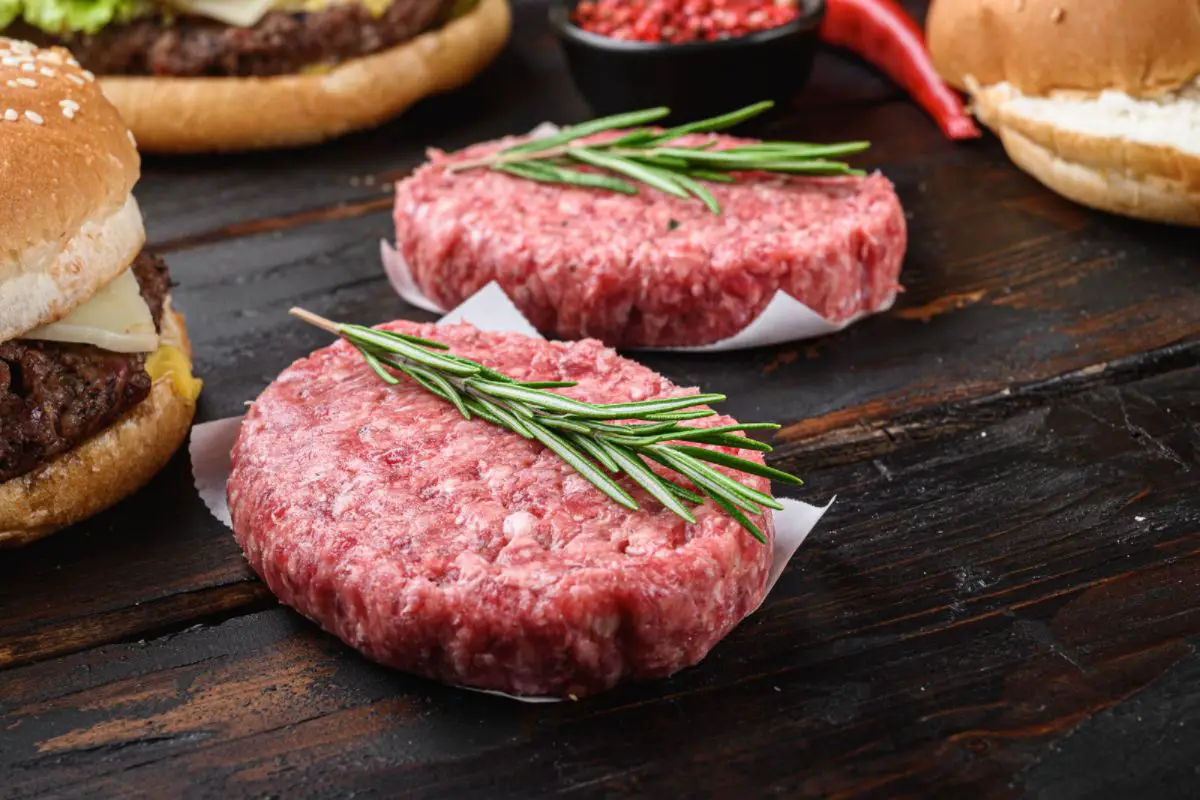This post contains affiliate links.
Many pet owners err on the side of caution when it comes to feeding dogs, while others believe dogs can enjoy and eat anything humans can. We see them as family, so we want them to enjoy the foods we enjoy, especially when their pleading eyes are so cute. But can they eat things like mayonnaise?
Dogs can eat mayo since none of the ingredients are toxic to them. However, it is not a sound nutritional choice because eating mayo can cause unintended health issues resulting from weight gain, and it may cause your dog to form food allergies.
We break down the many questions regarding the effects of mayo on a dog’s diet and provide a few ideas for strengthening your dog’s digestive tract. Even though you can feed your dog mayo, you might want to keep reading to find out if you should.
Table of Contents
What Is It About Mayo, in Particular, That Is Bad for Dogs?
The concern over dogs eating mayo, whether intentionally or accidentally, is because mayo is, in part, made from dairy products, which, according to Pet MD, can cause diarrhea and may trigger other allergies if the mayo is eaten often over time.
They further explain that the most common allergies come from proteins found in ingredients like eggs and soy, which are common ingredients in mayo, so avoiding the product is in the dog’s best interest.
Vets explain that each time a pet eats foods containing a known food allergen, “their bodies react with antigens and symptoms occur.”
Over time, these reactions can cause a full-blown food allergy. Unfortunately, the dog likely will not connect the fact that eating the food is what causes the unpleasant symptoms and will, therefore, keep eating the thing that is making him sick if owners allow it.
Since mayo has at least three of these high allergy ingredients, such as soy, eggs, and dairy, feeding it to your dog may set your dog up to develop food allergies later on.
In addition to being made with several known allergens, all brands of mayo have different recipes. For example, different mayo recipes from different brands have garlic and onions in them.
So while mayo itself is non-toxic to dogs, you need to be aware of what is in the recipe since some ingredients in the mayo will be toxic to your pet even if mayo is not.
Why Are Dog Owners Concerned Over Mayo?
If you have ever watched a dog eat, you know that most dogs are like vacuum cleaners. They eat anything in sight, often before their owners can determine what the dog has ingested.
Sadly, in many cases, dogs get into toxic food sources without the owner’s knowledge and they might remain unaware of the potential danger until the dog shows discomfort or becomes violently ill.
Fortunately, mayo is not one of those toxic substances, so there is little to worry about if your dog eats mayo. However, any pet owner who has experienced a pet that has eaten something harmful will forever remain concerned about ensuring that the occurrence does not happen again.
Therefore, it is essential to note that, while there are some human foods, such as chocolate and garlic, that most dogs should avoid because they can be toxic, mayo is non-toxic to dogs. Even so, it should be avoided.
Dogs Can Eat Mayo, Here Is Why You May Not Want Them To
As stated, mayo is not a forbidden food for all dogs, and owners should not be overly concerned if their dog gets into something like tuna salad or a ham sandwich made using mayo.
However, even though mayo is not toxic if dogs consume it, the main reason you may want to avoid feeding it to your dog is because of the condiment’s high-fat content.
Because there is no nutritional value, mayo adds empty calories to your dog’s diet, which results in weight gain and adds the potential for joint stress or damage, heart disease, and diabetes.
All of these issues are both costly and potentially life-threatening, so it makes sense to keep your pet on a diet designed for dogs.
If your dog does come into contact with mayo, though, there is nothing to worry about. However, you should watch access to mayo over time to avoid the potential problems relating to weight gain and possible allergies.
How Will I Know if My Dog Is Developing a Food Allergy After Eating Mayo?
Again, mayo is non-toxic to dogs, but it is a poor nutritional choice. If you suspect your dog has developed a food allergy caused by mayo, or anything else, you’ll need to look for symptoms and remedies. Let’s take a look at some of the symptoms dogs may exhibit that are worthy of a discussion with your vet.
Food Allergy Symptoms
If you suspect that your dog is allergic to mayo or may have developed a food allergy caused by eating mayo, watch for the following symptoms:
- Excessive Itching: When you notice excessive scratching, contact your vet because, according to the experts at NomNom, this problem signals a true food allergy. They say that true food allergies, as opposed to food intolerances, are caused when food proteins trigger an immune response that releases histamines that lead to itching. Therefore, if your dog begins to scratch excessively, do not ignore the behavior.
- Vomiting: Initial vomiting is not a genuine concern because often it is the body’s way of ridding itself of toxins, but if it continues over a twenty-four-hour period, seek veterinary care.
- Diarrhea: If your dog is behaving as expected and the diarrhea is short-lived, there is no concern, but if it continues for twelve to twenty-four hours, seek veterinary care.
- Change in Personality: If your dog changes and becomes more aggressive or seems too sluggish to play, seek veterinary care.
- Hives or Facial Swelling: Dogs can experience both of these symptoms due to bug bites or other skin allergies, but if a food sensitivity is a culprit, removing the food from the dog’s diet will help to relieve the symptoms.
Most often, with non-toxic foods like mayo, the health issue might be food sensitivity rather than an allergy or aversion. However, food allergies and sensitivities can develop over time, making it difficult to determine the root cause of the symptom.
If you are asking about mayo, though, it is likely that you suspect a food allergy, and only your vet can make the diagnosis and treat the symptoms.
The Important Things To Remember
It is hard to say no when our pets show us those beautiful eyes and beg for the food we enjoy. However, we have to remember that their digestive system is different from ours, as are their nutritional needs.
While their noses tell them they will enjoy everything we eat, they metabolize food differently, so their enjoyment of mayo and other human foods will be short-lived at best, but dangerous at worse.
Most often, feeding dogs human food is simply not worth the risk. You might try dog-friendly treats like those listed below to appease your furry friend when you have something to eat that he can’t share with you.
Amazon.com has the following highly-rated treats that will probably be more appealing to your dog than the mayo he is begging for.
- Nudges Natural Dog Treats – These treats are made with real steak and contain no corn, wheat, or soy products.
- Cesar Softies Dog Treats – These treats have only seven calories, so they are a good treat for dogs who need to lose a little weight. They also come in three flavors: filet mignon, chicken. Trio comes in the following flavors: porterhouse, chicken, bacon.
- Jungle Calling Dog Treats – These treats are gluten and grain-free, chicken-wrapped sweet potato snacks that help keep your dog’s breath fresh.
- Peanut Butter Dog Cookies – These treats are cookies with a creamy filling.
- Three Dog Bakery – These treats are sandwich cookies, too, and come in six flavors, including golden vanilla and peanut butter.
- Petco Treat Bar – This treat is impressive because it looks like a human cookie, and the white cream may be enough to satisfy your dog’s mayo craving.
When your dog wants to be a part of family mealtime, it is best to avoid giving him things like mayo. Instead, substitute the nutritious treats listed above that will either help his digestive system or provide other nutrients that will be beneficial.
Help for Your Dog’s Digestive System
While it is clear that mayo is not going to harm your pet in small amounts, the vets at PetMD say that adding a probiotic to your dog’s daily routine can help keep the good bacteria in the dog’s stomach “happy.”
Here are some probiotics we found on Amazon.com:
- Zesty Paw’s Prootic Bites: Digestion – We like this one because it is chewable and has six probiotics. It also comes in chicken and pumpkin flavors.
- Amazing Nutritionals’ Amazing Probiotics – We like this one because they are small and contain glucosamine, giving the added benefit of helping the dog’s joints.
- Purina FortiFlora Probiotics for Dogs – Veterinarians often recommend this probiotic, and it comes in thirty, sixty, and ninety-day supplies.
- PetHonesty Probiotic – This product is a soft chew that comes in pumpkin and duck flavors, and contains no wheat, soy, sugar, or preservatives.
- Doggie Dailies – This probiotic is a soft chew and comes in pumpkin and duck flavor and supports digestive and immune system health.
Conclusion
There are many instances where dogs can eat mayo whether accidentally, or on purpose. Perhaps your crafty pet has snagged a ham sandwich from the picnic table or lapped tuna salad from a child’s cracker. Neither of these cases is cause for alarm, though. Just remember that although mayo is non-toxic to dogs, it is not a sound nutritional choice and, therefore, should not be a regular part of your pet’s diet.
Related Articles
- Can Dogs Eat Raspberries? Let’s Find Out!
- Can Dogs Eat Frozen Yogurt? Read This First!
- Can Dogs Eat Ginger Snaps: Yay or Nay?
- Tapioca for Dogs: Should It Be Part of Your Dog’s Diet?
- Can Dogs Eat Banana Bread? We Ask the Experts!
Sources
- Vet Explains Pets: Can Dogs Eat Mayo?
- VCA Hospitals: Food Allergies in Dogs
- NOMNOM: Dog Food Allergies Causes and Cures
- Fetch PetMD: Foods Your Dog Should Never Eat / Milk and Dairy Products
Mrdogfood.com is a participant in the Amazon Services LLC Associates Program, an affiliate advertising program designed to provide a means for sites to earn advertising fees by advertising and linking to Amazon.com. We also participate in other affiliate programs which compensate us for referring traffic.






